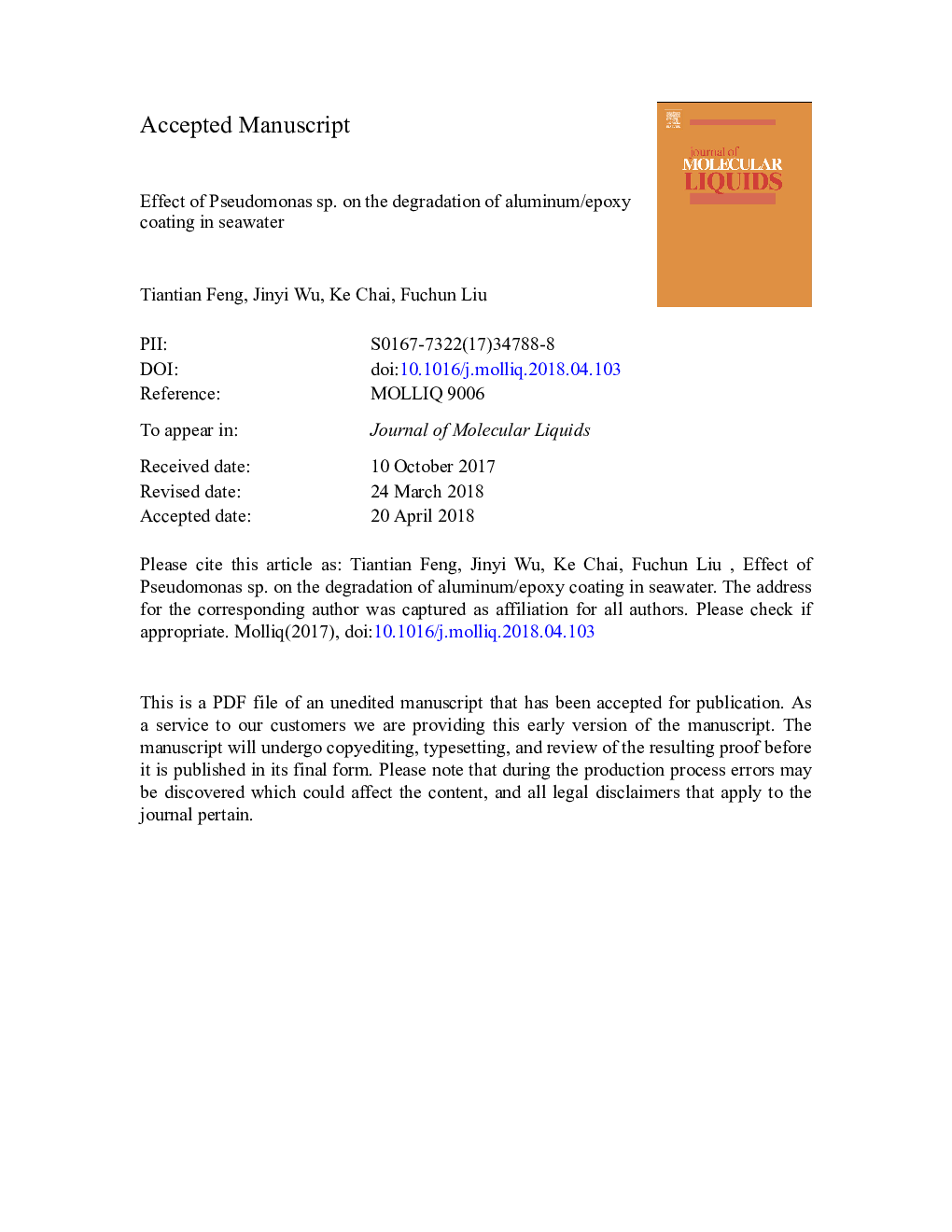| Article ID | Journal | Published Year | Pages | File Type |
|---|---|---|---|---|
| 7842197 | Journal of Molecular Liquids | 2018 | 18 Pages |
Abstract
Polymeric coatings prevent metal materials from corrosion. Nevertheless, the degradation of the coatings in seawater by microorganisms is almost unknown. In this work, we explored the degradation of the aluminum/epoxy coating in sterile seawater and seawater inoculated with Pseudomonas sp. by electrochemical impedance spectroscopy, scanning electron microscopy, energy dispersive spectroscopy, Fourier transform infrared spectroscopy and contact angle test. The decreases in the corrosion resistance of the coating were significantly higher in seawater inoculated with Pseudomonas sp. than in sterile seawater. The mature biofilm formed on the coating and then the extensive under-coating corrosion occurred in seawater inoculated with Pseudomonas sp.. These results revealed that Pseudomonas sp. significantly decreased the corrosion resistance of the coating and might degrade the coating. Some bulges and tiny holes were observed on the coating in seawater inoculated with Pseudomonas sp.. The contents of Al and O significantly respectively decreased and increased on the surface of the coating in seawater inoculated with Pseudomonas sp. relative to those on the surfaces of the coating without immersion and in sterile seawater. The absorbance of the C-OH peak for the coating immersed in seawater inoculated with Pseudomonas sp. was significantly higher than that for the coating without immersion and the coating immersed in sterile seawater. Moreover, Pseudomonas sp. decreased the water contact angle of the coating surfaces. The results demonstrated that Pseudomonas sp. degraded the aluminum/epoxy coating through decomposing the aluminum and oxidizing the epoxy to forming hydroxyl.
Keywords
Related Topics
Physical Sciences and Engineering
Chemistry
Physical and Theoretical Chemistry
Authors
Tiantian Feng, Jinyi Wu, Ke Chai, Fuchun Liu,
